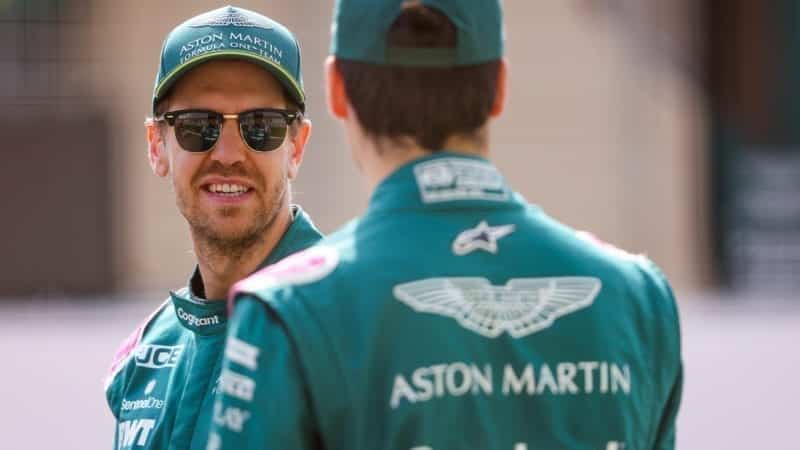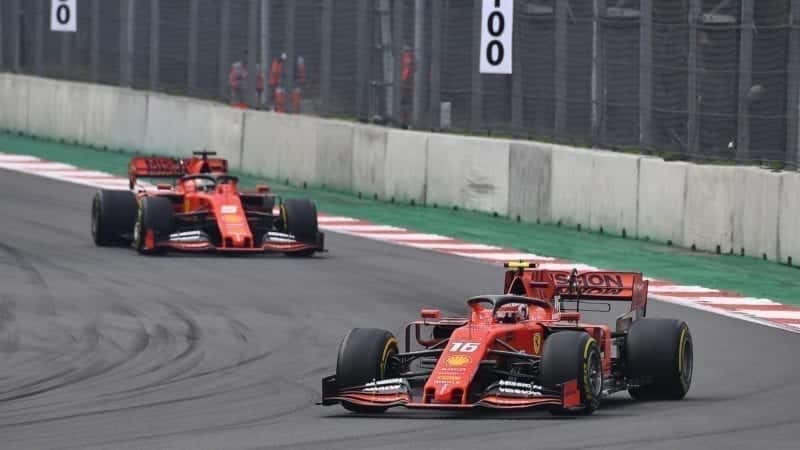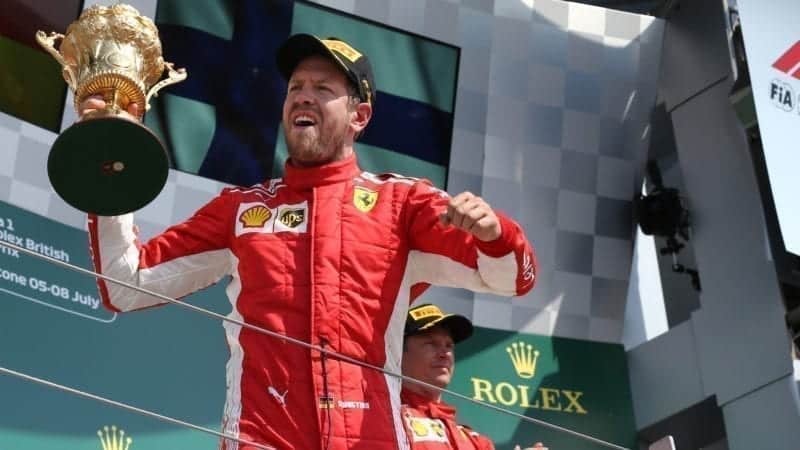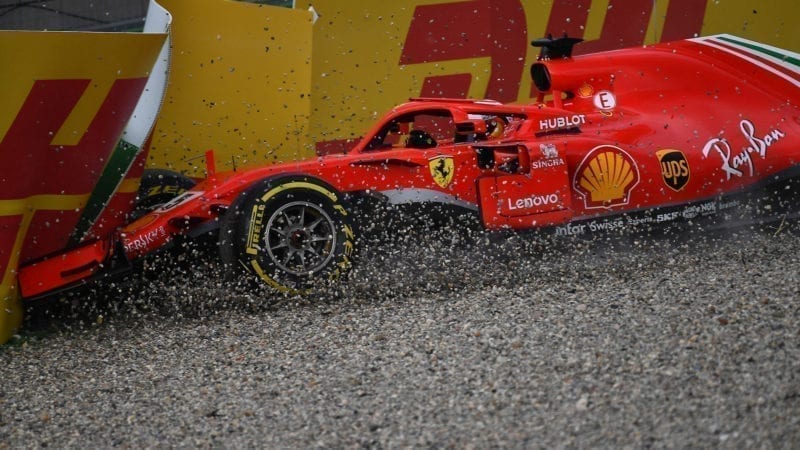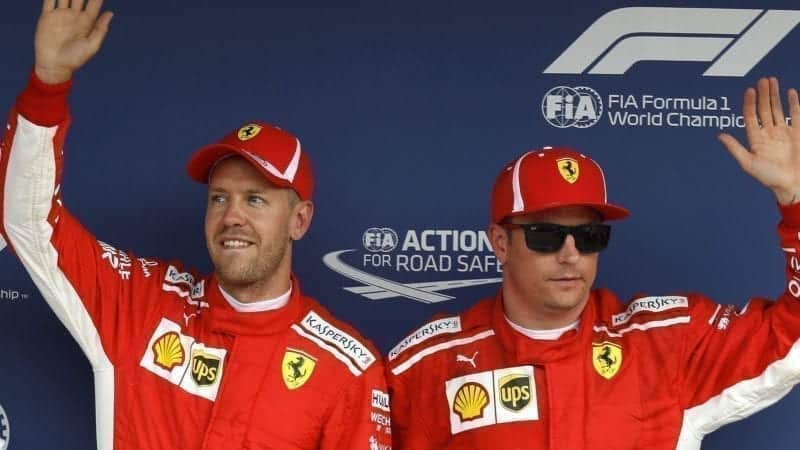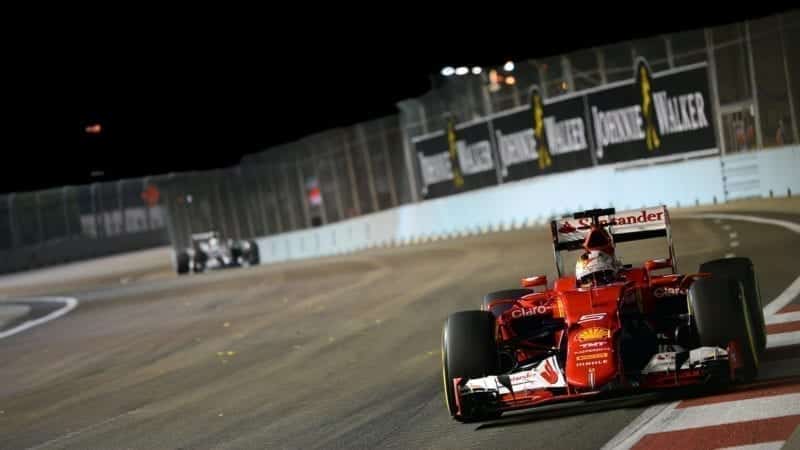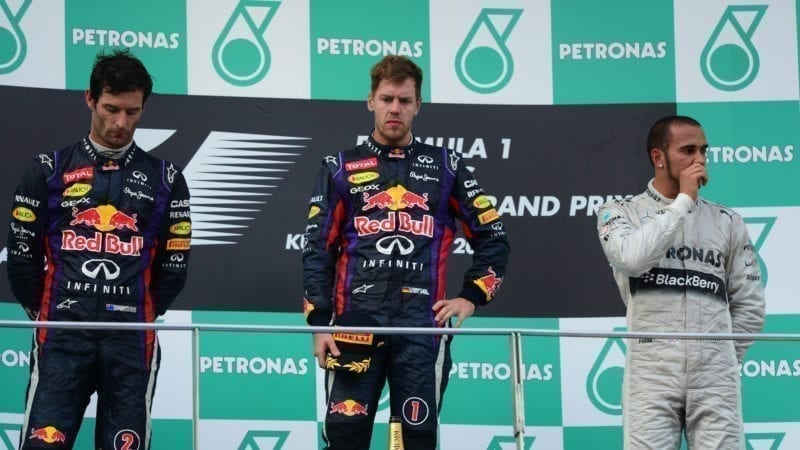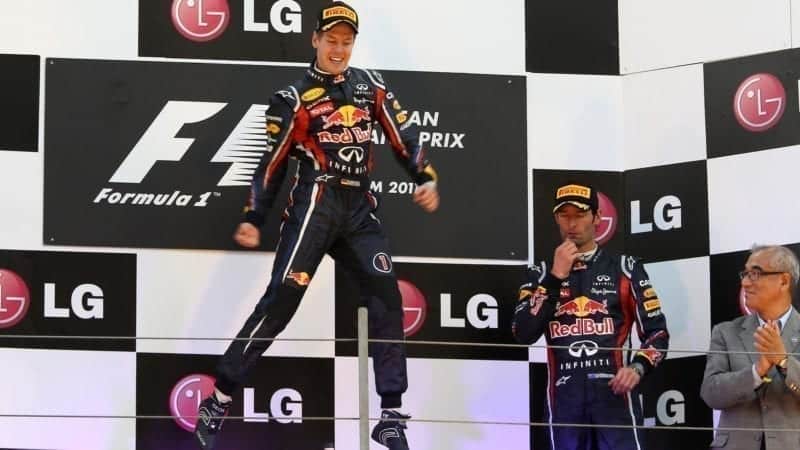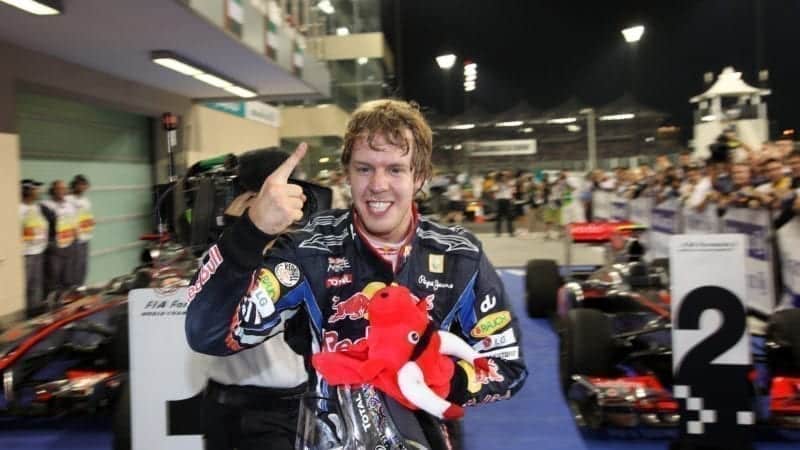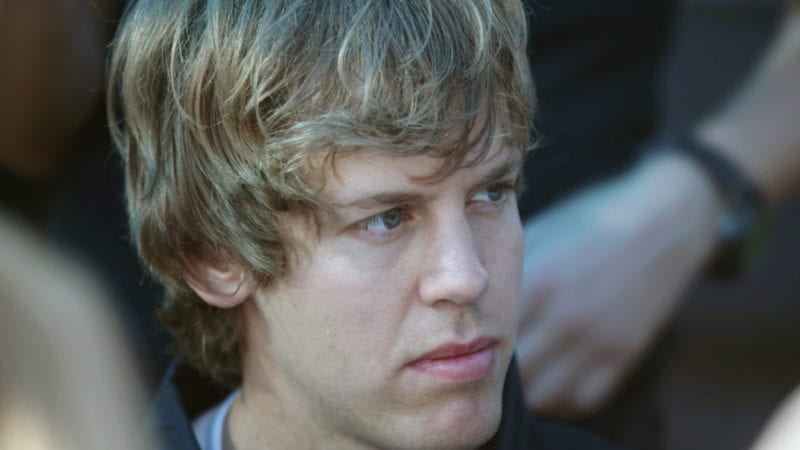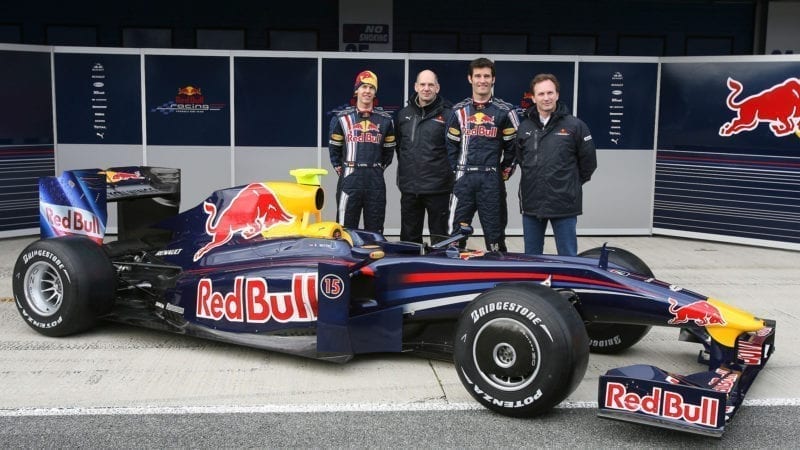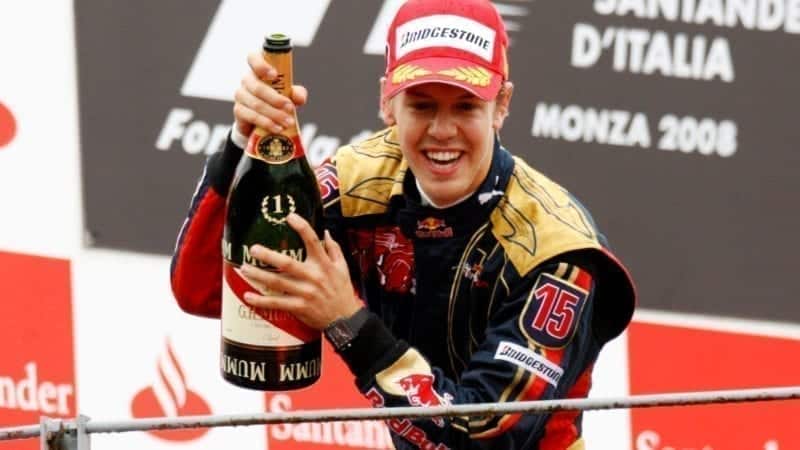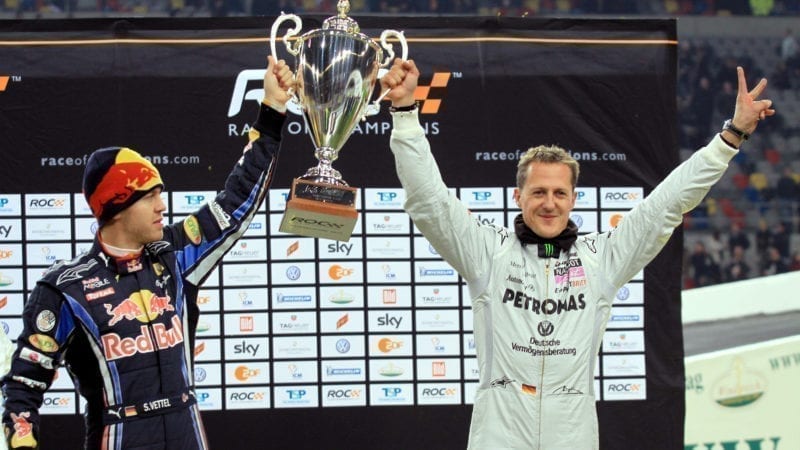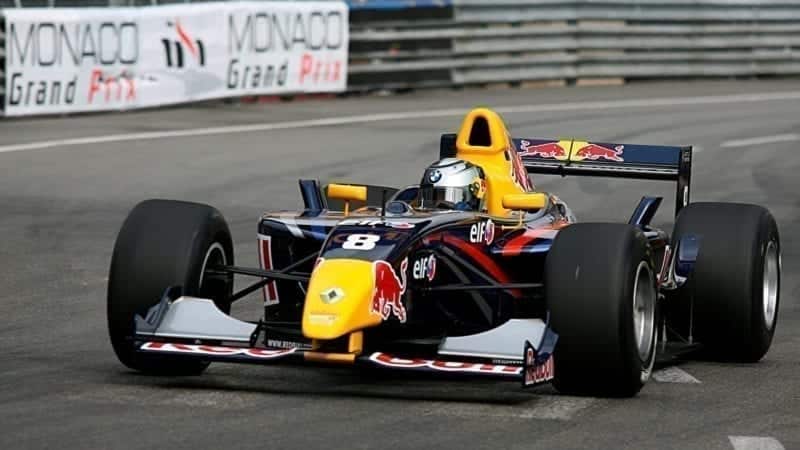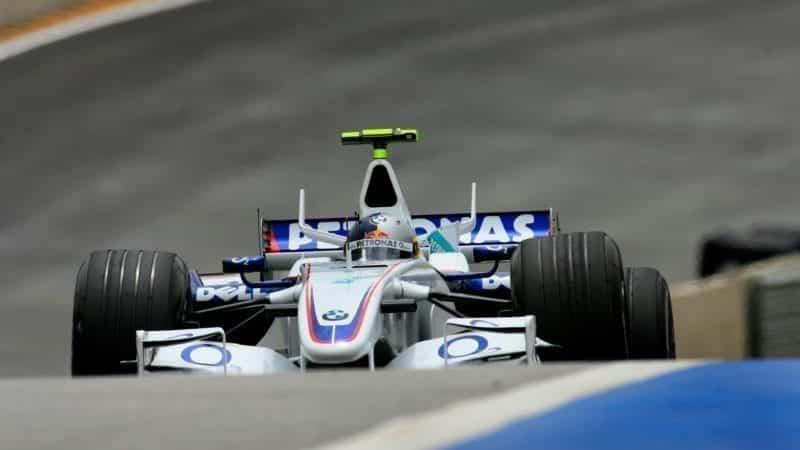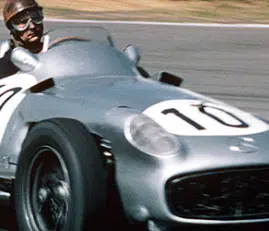Still studying at school, he joined ASL-Mücke Motorsport for the 2005 Formula 3 Euroseries and scored six podium finishes in a field that included eventual champion Lewis Hamilton and Adrian Sutil. He was an impressive fifth overall, tested a Williams FW27-BMW at Jerez that autumn (a belated part of his F.BMW prize) and switched to ASM’s Dallara F305-Mercedes to finish third at Macau.
Vettel remained with ASM for the 2006 F3 Euroseries and battled team-mate Paul di Resta for the title. The Scot just edged his rival in the final championship standings (winning five races to four) but Vettel was already announcing himself in F1 by then. He was the Friday test driver for BMW Sauber F1 Team from the Turkish GP where he topped the time sheets in Free Practice 2.
Formula 1 – an immediate impact
The 2007 season began racing for Carlin Motorsport in Formula Renault 3.5 and as BMW Sauber’s reserve driver. He won at the Nürburgring to lead the FR3.5 standings before quitting to graduate to F1. Robert Kubica was injured in Canada and Vettel replaced him for the United States GP. Seventh on the grid, his mature drive to eighth at the finish delivered a championship point on his debut. With such evident promise, Vettel switched to Scuderia Toro Rosso when Scott Speed was ditched after the European GP. Vettel was running third in the Japanese rain when he crashed into Mark Webber behind the safety car – the youngster unable to hold back his tears of frustration. That was followed by a fourth place finish a week later in China as he showed his wet weather prowess once more.
Vettel stayed with Toro Rosso for 2008 and finished fifth in the wet at Monaco. He had developed into a regular points scorer by the end of the season and finished eighth overall in the World Championship. The undoubted highlight was his pole position-to-chequered flag performance at Monza – again the master in the wet and now F1’s youngest winner so far.
World Champion with Red Bull Racing
That form earned Vettel promotion to the sister Red Bull Racing team for 2009. The Brawn BGP001 began the year as the class of the field thanks to its “double diffuser” but design guru Adrian Newey soon developed the Renault-powered RB5 into a race winner. Vettel broke Jenson Button’s run of success by winning in China and was more-than a match for the Englishman by mid-season. Further victories at Silverstone, Suzuka (both from pole position) and Abu Dhabi saw the German finish as championship runner-up after reliability issues eventually blunted his challenge.
Vettel and the Red Bull RB6-Renault were the quickest combination in 2010 as illustrated by his ten pole positions. However, further mechanical issues, his petulant clash with team-mate Mark Webber in Turkey and collision with Button’s McLaren at Spa-Francorchamps put a first title in doubt until the final round. One of four drivers with a chance of becoming World Champion at that Abu Dhabi decider, Vettel scored his fifth victory of the season to snatch the title from Fernando Alonso – again the youngest driver to do so.
That he would retain the World Championship rarely looked in doubt during 2011. He was one of the only drivers to visit new tyre supply Pirelli during the close season – testament to his dedication to his art. Vettel then qualified on the front row on all-but-one occasion (when he was third on the grid) and his 15 pole positions established another new F1 record. Those were converted into 11 victories as he eased to the title with four rounds to spare.
The start of the 2012 campaign saw the first seven grands prix won by seven different drivers with Vettel successful in Bahrain. Only fourth in the championship after the Italian GP, he promptly won the next four races to overhaul Alonso ahead of the final round in Brazil. All seemed lost when he crashed into Bruno Senna’s Williams on the opening lap and his car was only narrowly avoided by several oncoming backmarkers. With Newey studying the damage on photographs, Vettel limped home in sixth position to beat Alonso – only second that day – to the title.

